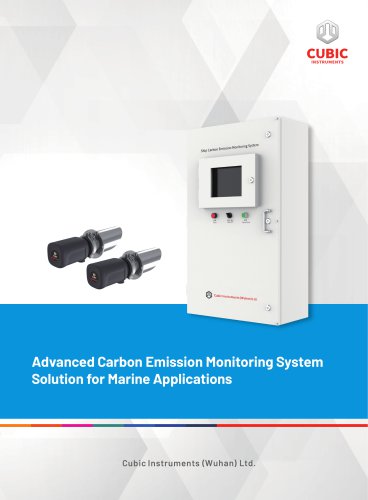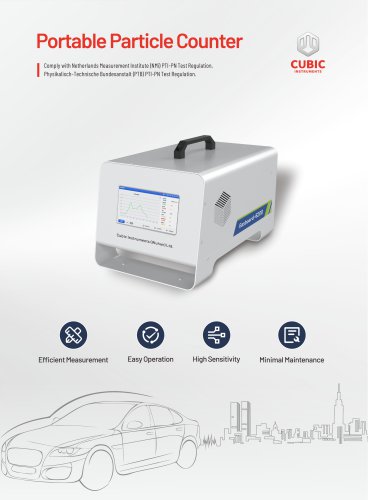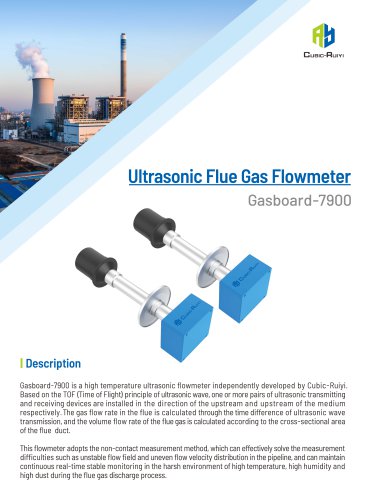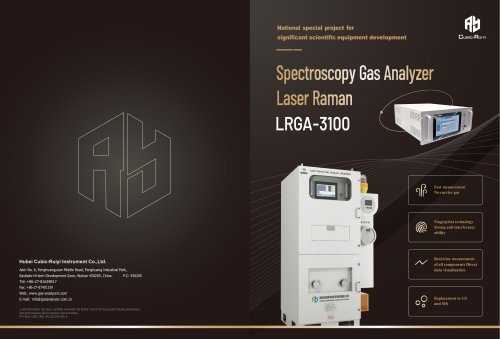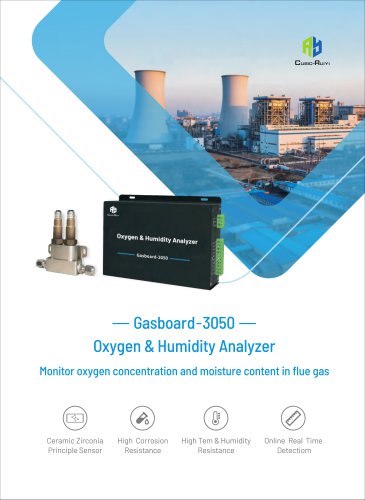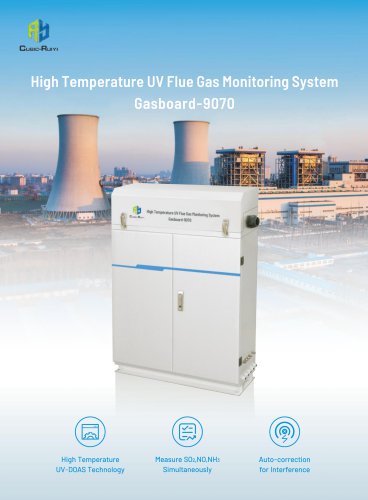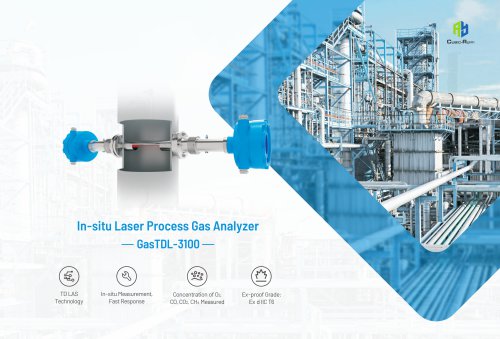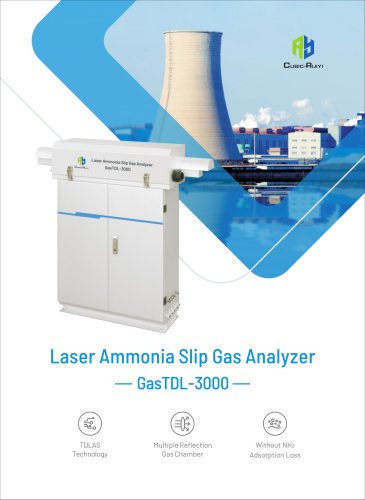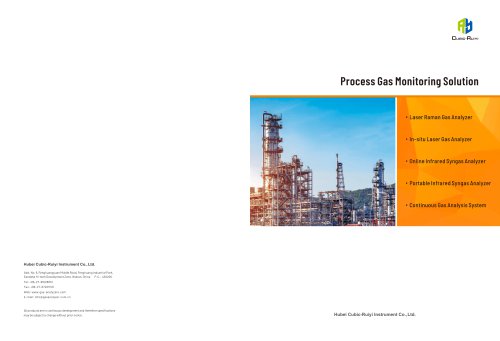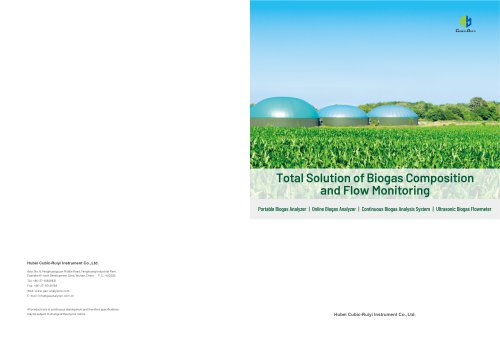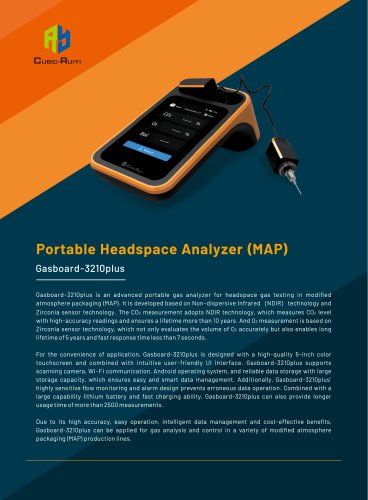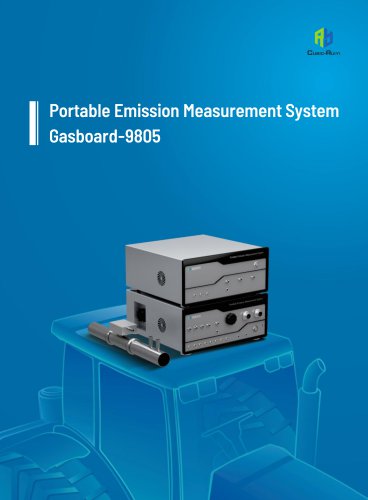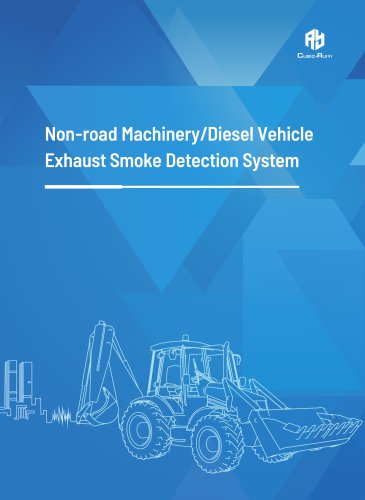 Website:
Cubic Sensor and Instrument Co.,Ltd
Website:
Cubic Sensor and Instrument Co.,Ltd
Group: Cubic
Catalog excerpts

For Outdoor Particulate Matter Monitoring PM3006 System Cubic Sensor and Instrument Co.,Ltd www.gassensor.com.cn
Open the catalog to page 1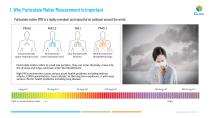
1. Why Particulate Matter Measurement Is Important Particulate matter (PM) is a highly prevalent and impactful air pollutant around the world. PM10 Coarse particules Fine particules Upper respiratory tract Lower respiratory tract Very fine particules Alveolus Ultrafine particules Blood/Whole body Particulate matter refers to small size particles, they can enter the body, move into the airways and lungs, and even enter the bloodstream. High PM concentration cause serious acute health problems including asthma attacks, COPD exacerbations, heart attacks. In the long term explosure, it will...
Open the catalog to page 2
2. Why Outdoor Particulate Matter Monitoring Is More Critical Outdoor air pollution is one of the world’s largest health and environmental problems. PM is a common and first proxy indicator for air pollution. Many countries have legislation that require ambient PM monitoring in cities and industrial & construction worksite. Without measurement there is no control. Intensive grid monitoring becomes more and more necessary. 2005 V.S. 2021 WHO Air Quality Guidelines(AQGs) With the growing awareness for air pollution for human beings, WHO strengthened the standards for PM concentration in air....
Open the catalog to page 3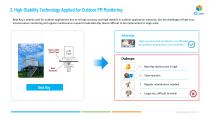
3. High-Stability Technology Applied for Outdoor PM Monitoring Beta Ray is widely used for outdoor applications due to its high accuracy and high stability in outdoor application scenarios, but the challenges of high cost, inconsecutive monitoring and regular maintenance required make Beta Ray device difficult to be implemented in large-scale. Advantage: High accuracy and sensitivity, not affected by ambient temperature and humidity Beta Ray device price is high Slow reaction Regular maintenance needed Large size, difficult to install
Open the catalog to page 4
4. Emerged Reliable and Affordable Laser Scattering Technology for Outdoor PM Monitoring Real-time and continuous monitoring second by second Fast response Affordable for dense grid monitoring Capable for harsh outdoor working environment Light Scattering
Open the catalog to page 5
5. How to Choose a Suitable Laser PM Sensor for Outdoor Application Real-time Network Monitoring • Equivalent to Bet Ray device • Capable for accurate measurement in different dust scenarios • Wider temperature range applicability • Anti-humidity capability
Open the catalog to page 6
6. Popular Laser PM Sensors Used for Outdoor Monitoring in the Market There are 2 kinds of laser sensors in the market, indoor application designed laser PM sensor and especially designed outdoor application PM sensor. Indoor application designed sensor cannot be used for outdoors due to outdoor temperature, humidity, PM concentration conditions challenges, the especially designed laser PM sensor is irreplaceable for outdoor PM monitoring. Outdoor Applications Forest fire Indoor Applications Indoor application laser PM sensors in the market Industrial emission Bulk handing Especially...
Open the catalog to page 7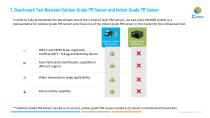
7. Benchmark Test Between Outdoor Grade PM Sensor and Indoor Grade PM Sensor In order to fully demonstrate the benchmark test of the 2 kinds of laser PM sensors, we had Cubic PM3006 system as a representative for outdoor grade PM sensor and chose one of the indoor grade PM sensor in the market for the comparison test. PM2.5 and PM10 linear regression coefficient(R²)>0.8 against Beta Ray Device Auto Particulate Identification capability in different regions Wider temperature range applicability Anti-humidity capability **Outdoor Grade PM Sensor named as [C sensor], indoor grade PM sensor...
Open the catalog to page 8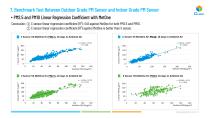
7. Benchmark Test Between Outdoor Grade PM Sensor and Indoor Grade PM Sensor • PM2.5 and PM10 Linear Regression Coefficient with MetOne Conclusion: ① C sensor linear regression coefficient (R²) >0.8 against MetOne for both PM2.5 and PM10. Conclusion: ② C sensor linear regression coefficient (R²) against MetOne is better than S sensor. C Sensor VS MetOne for PM10, 16 days in Ambient Air C Sensor VS MetOne for PM2.5, 16 days in Ambient Air S Sensor VS MetOne for PM10, 16 days in Ambient Air S Sensor PM10 μg/m³ S Sensor VS MetOne for PM2.5, 16 days in Ambient Air 200
Open the catalog to page 9
7. Benchmark Test Between Outdoor Grade PM Sensor and Indoor Grade PM Sensor • Particle Identification Capability at Normal Temperature 25℃ Conclusion: ① PM1.0, PM2.5, PM10 of Cubic C sensors conform to GRIMM 11-A, while S sensors have no correlation with GRIMM 11-A Conclusion: ② Cubic C sensors Identification capability of PM1.0, PM2.5, PM10 is better than S sensors C sensor VS Grimm 11-A @25℃ Particle distribution @environment smoke + KCL
Open the catalog to page 10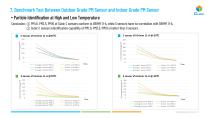
7. Benchmark Test Between Outdoor Grade PM Sensor and Indoor Grade PM Sensor • Particle Identification at High and Low Temperature Conclusion: ① PM1.0, PM2.5, PM10 of Cubic C sensors conform to GRIMM 11-A, while S sensors have no correlation with GRIMM 11-A. Conclusion: ② Cubic C sensors Identification capability of PM1.0, PM2.5, PM10 is better than S sensors. C sensor VS Grimm 11-A @-30℃ 250 200 150 100 50 0 Average C Sensor PM1.0 Average C Sensor PM2.5 Average C Sensor PM10 150 100 50 Averagr C sensor PM1.0 Averagr C sensor PM2.5 Averagr C sensor PM10 Average S Sensor PM1.0 Average S...
Open the catalog to page 11
7. Benchmark Test Between Outdoor Grade PM Sensor and Indoor Grade PM Sensor • Measurement Performance at High Temperature 70℃ Conclusion: The performance of C sensors at 70℃ is excellent, while the consistency of S sensors at 70℃ is not good. C sensor PM1.0 Curve Time Time Time 1# C Sensor 4# C Sensor
Open the catalog to page 12
7. Benchmark Test Between Outdoor Grade PM Sensor and Indoor Grade PM Sensor • Measurement Performance at Low Temperature -30℃ Conclusion: The performance of C sensors at -30℃ is excellent, while the consistency of S sensors at -30℃ is not good. C sensor PM2.5 Curve Time Time 1# C sensor Time Time 2# C sensor Time Time 4# C sensor S sensor PM1.0 Curve Concentration(μg/m³) C sensor PM10 Curve Concentration(μg/m³)
Open the catalog to page 13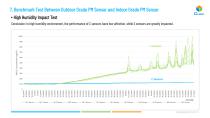
1# C Sensor 2# C Sensor 3# C Sensor 4# C Sensor 5# C Sensor 1# S Sensor 2# S Sensor 3# S Sensor 4# S Sensor 5# S Sensor 6# S Sensor 7. Benchmark Test Between Outdoor Grade PM Sensor and Indoor Grade PM Sensor • High Humidity Impact Test Conclusion: In high humidity environment, the performance of C sensors have low affection, while S sensors are greatly impacted.
Open the catalog to page 14All Cubic Sensor and Instrument Co. catalogs and technical brochures
-
Cubic TDLAS CH4 Sensor
4 Pages
-
Gasboard-7500H-OPC
13 Pages
-
NDIR CO2 Sensor Module-CM1106LS
18 Pages
-
Laser Particle Sensor-PM2008M-M
22 Pages
-
Laser Particle Sensor-PM2012
19 Pages
-
Test Instruction of AM4100-I
7 Pages
-
Test Instruction of AM1008W
7 Pages
-
Test Instruction of PM5000
7 Pages
-
Test Instruction of PM1006
8 Pages
-
Test Instruction of CM1107T
7 Pages
-
Test Instruction of CM1107BN
8 Pages
-
Test Instruction of PM3006T
7 Pages
-
Test Instruction of PM2009
8 Pages
-
Test Instruction of CM1106SH
8 Pages
-
Test Instruction of CM1107
8 Pages
-
Test Instruction of CM1106S
8 Pages
-
Test Instruction of CM1106LS
8 Pages
-
Laser Particle Sensor-PM2008
21 Pages
-
Laser Particle Sensor-PM2009
20 Pages
-
Laser Particle Sensor-PM2105-M
20 Pages
-
NDIR CO2 Sensor Module-CM1106S
18 Pages
-
Gas Sensor Line-up
1 Pages
-
About Cubic
1 Pages
-
CEMS Solution - Gasboard 9050
22 Pages
-
NDIR CO2 Sensor Modules
7 Pages
-
Gasboard-7020
4 Pages
-
Gasboard-7500
7 Pages
-
Mainstream ETC02 module
5 Pages
-
Gasboard 3400P
5 Pages
-
Analyzer Gasboard 3800P
6 Pages
-
LANDFILL APPLICATIONS
8 Pages
Archived catalogs
-
Air quality monitor AM7000
11 Pages
-
RHB Series
8 Pages
-
Ultrasonic Flow meter 7200
1 Pages
-
Syngas portable analyzers
4 Pages
-
Opacity meter
1 Pages
-
Infrared Methane gas sensor
3 Pages



